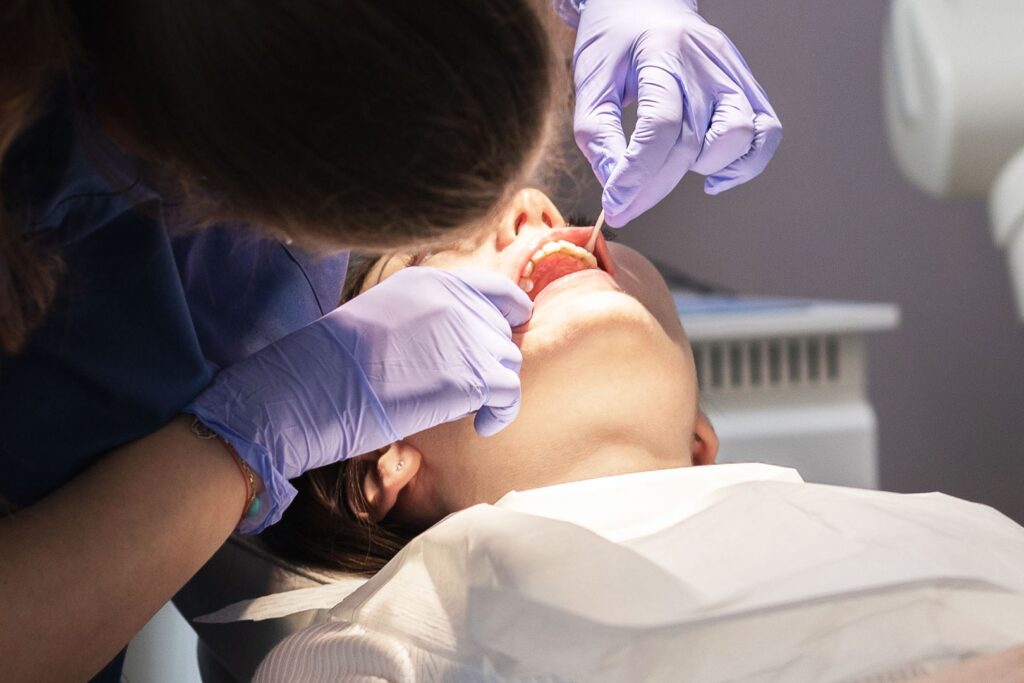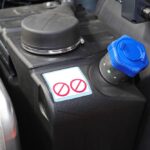Knowing how to prepare for an emergency dental visit can make a stressful situation easier to handle. Dental emergencies can happen at any time, and being prepared ensures that you’re not caught off guard. Whether it’s a sudden toothache or a broken tooth, knowing what to do is crucial.
In this guide, we’ll walk you through the essential steps to take before and during an emergency dental visit. By staying calm and prepared, you can manage the situation better, reduce pain, and get the best care possible when you need it the most.
Introduction to Dental Emergencies
Dental emergencies can happen when you least expect it, and knowing how to handle them is important. A dental emergency is any situation where you experience severe pain, injury, or damage to your teeth and gums that needs immediate attention from a dentist.
The key to managing these emergencies is acting quickly and getting the proper care before the problem worsens. Having the contact information of an emergency dentist on hand can help you get the urgent treatment you need without delay.
Why Quick Action Matters
In any dental emergency, the faster you get help, the better your chances of saving your tooth or relieving pain. Delaying treatment can lead to more complicated and expensive procedures later on, so always seek professional help as soon as you notice something isn’t right.
Understanding What Constitutes a Dental Emergency
When it comes to dental health, not every issue requires an immediate trip to the dentist. However, understanding what constitutes a dental emergency can help you make quick and informed decisions when a problem arises. A dental emergency is any situation that causes intense pain, damage, or risk to your oral health and requires immediate attention from a dental professional.
Common Dental Emergencies
- Severe Tooth Pain
A toothache that is constant, sharp, or throbbing could signal a serious issue like a deep cavity or infection. If the pain persists or gets worse, it’s important to visit a dentist right away.
- Knocked-Out or Loose Tooth
If you lose a tooth from an injury or accident, it is considered a dental emergency. In some cases, the tooth can be saved if you act quickly and get to a dentist within an hour.
- Cracked or Broken Teeth
A cracked or broken tooth can be extremely painful and may lead to further damage if not treated promptly. The dentist will assess the damage and decide the best way to repair it.
- Infection or Abscess
An abscess, which appears as a swollen area around the gums or teeth, can cause severe pain and may spread infection. Immediate treatment is necessary to prevent it from worsening.
Why It’s Important to Act Fast
In any dental emergency, time is crucial. Prompt action helps to avoid further complications, such as infections, permanent tooth loss, or the need for costly treatments later on. The sooner you address a dental emergency, the better the chances are for a successful recovery.
Steps to Take Before Visiting the Emergency Dentist
When faced with a dental emergency, staying calm and prepared can make all the difference. Knowing the right steps to take before heading to the dentist ensures you get the care you need quickly and effectively. Here’s what you should do:
1. Assess the Situation
First, evaluate the severity of the issue. If you’re in severe pain, bleeding, or have lost a tooth, it’s important to act fast. For less serious issues, like mild discomfort, you may be able to manage the situation with at-home remedies before seeing the dentist.
2. Contact an Emergency Dentist
Call an emergency dentist immediately. Many dental offices have after-hours services or emergency hotlines for urgent situations. Provide them with details about your symptoms; whether it’s tooth pain, a cracked tooth, or something else; and ask for advice on how to manage the issue until your appointment.
3. Gather Your Information
Before you leave for the dentist, make sure to bring necessary information such as your medical history, any medications you’re currently taking, and your dental insurance details. This will help speed up the process once you arrive.
4. Manage Pain and Swelling
While waiting to visit the dentist, use ice packs on the outside of your mouth to reduce swelling, or take over-the-counter pain relief if needed. Avoid putting pressure on the injured tooth or gums, and try to stay in a comfortable position.
5. Preserve Any Lost Teeth
If you’ve lost a tooth, try to find it and keep it safe. If it’s a permanent tooth, place it in a glass of milk or between your cheek and gums to preserve it. The dentist may be able to reimplant it if you get there quickly.
What to Expect During an Emergency Dental Visit
When you visit the dentist for an emergency, it can feel overwhelming, but knowing what to expect can ease some of that stress. Here’s what typically happens during an emergency dental visit:
1. Initial Check-In and Assessment
Once you arrive, you’ll check in and provide the dentist with details about your symptoms. You may need to fill out a form if it’s your first visit or confirm your medical history if it’s an ongoing situation. Be ready to explain what happened, when the pain started, and if you’ve tried any pain relief.
2. Examination and Diagnosis
The dentist will examine your mouth, teeth, and gums to assess the problem. In some cases, they may take an X-ray to get a better view of any underlying issues, such as tooth fractures, infections, or nerve damage. This helps them determine the best treatment plan.
3. Immediate Treatment
Depending on your situation, the dentist will provide immediate treatment to relieve pain or address the emergency. This could include things like:
- Filling a cavity or sealing a cracked tooth.
- Reattaching a knocked-out tooth or providing a temporary fix.
- Draining an abscess or treating a gum infection.
The goal is to reduce pain, prevent further damage, and stabilize the situation.
4. Pain Management
During the procedure, the dentist will make sure you are comfortable. They may use local anesthesia to numb the affected area and ensure you don’t feel pain during the treatment. If needed, they might also prescribe painkillers for aftercare.
5. Follow-Up Care
Once the emergency has been treated, the dentist will discuss any follow-up care. This could involve additional appointments for a more permanent solution, such as a root canal, crown, or tooth extraction. They may also give you specific instructions for at-home care to help with healing.
Aftercare and Preventing Future Dental Emergencies
After experiencing a dental emergency, it’s important to follow proper aftercare to ensure healing and reduce the risk of further issues. Additionally, taking steps to prevent future dental emergencies can save you time, money, and pain in the long run.
1. Immediate Aftercare Tips
After your emergency dental treatment, follow your dentist’s instructions carefully. This may include:
- Managing Pain: Take any prescribed pain medications or over-the-counter pain relievers as directed.
- Avoiding Hard Foods: Stick to soft foods for the first few days to avoid putting pressure on the affected tooth.
- Keeping the Area Clean: Gently rinse your mouth with warm salt water to keep the area clean and promote healing. Avoid using mouthwash with alcohol, as it can irritate the area.
- Resting: If you had a tooth extraction or other invasive procedure, rest to help reduce swelling and encourage recovery.
2. Follow-Up Appointments
If your dentist suggests follow-up visits, make sure to keep them. These appointments may include checking how well your tooth or gums are healing or discussing further treatment options like crowns, fillings, or root canals.
3. Preventing Future Dental Emergencies
Prevention is key to avoiding future dental problems. Here are some simple habits to help:
- Practice Good Oral Hygiene: Brush and floss your teeth daily to prevent cavities, gum disease, and infections.
- Wear a Mouthguard: If you play sports, a mouthguard can protect your teeth from injury.
- Avoid Hard or Sticky Foods: Chewing on hard candies, ice, or sticky snacks can crack or damage teeth.
- Regular Dental Checkups: Visiting your dentist for regular checkups can help catch issues early before they become emergencies.
Conclusion
Preparing for an emergency dental visit is all about staying calm and knowing what steps to take. By following these tips, you’ll feel more confident and ready to tackle any dental emergency. Remember, quick action can prevent further damage, so always be prepared for the unexpected.





